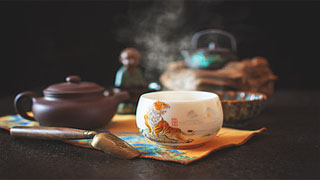
Diabetes is considered to belong to the category of diabetes in tcm theory. It is a type of disease based on yin deficiency. Diabetes is a common endocrine disease. Traditional Chinese medicine believes that due to lung heat and fluid injury, or spleen deficiency can not effectively transport the essence of water and grain, kidney deficiency leads to a series of phenomena in the human body, such as yin deficiency and fire hyperactivity, yin deficiency and internal heat. Patients with diabetes will have dysfunction of islets of langerhans, which will lead to disorder of blood sugar metabolism and increase of blood sugar. Patients may experience a series of symptoms such as thirst, excessive drinking, frequent urination, and weight loss. The occurrence of diabetes is closely related to improper diet, emotional disorder, fatigue and internal injury, blocked meridians, and imbalance of yin and yang in viscera. In traditional Chinese medicine, diabetes is usually treated by nourishing yin and clearing heat, strengthening spleen and tonifying kidney. In terms of classification, treatment should be based on the pathogenesis of different stages. According to TCM theory, diabetes mainly includes the type of deficiency of both qi and yin, the type of deficiency of both yin and fire, the type of deficiency of both yin and yang, the type of stagnation of qi and blood stasis, and the type of dryness and heat entering the blood. Let's share this hypoglycemic tea suitable for diabetes patients with yin deficiency and fire hyperactivity.
【 Composition of Tea Recipe 】
30g of white clover, 5g of ginseng, 10g of kudzu root, 15g of rehmannia root, and 10g of turmeric
Boil water according to the above ratio and drink it as tea
Analysis of Tea Recipe
Fanbai grass has a sweet and slightly bitter taste, a mild and cold nature, and is beneficial for the stomach and large intestine meridians. It has the effects of detoxification, hemostasis, analgesia, antioxidant, antibacterial, antiviral, blood sugar lowering, and blood stasis dispelling.
Huaqi ginseng, also known as Western ginseng, is cool in nature, sweet in taste, and slightly bitter. It belongs to the spleen, lung, heart, and kidney meridians. It has the effects of nourishing yin, moistening lungs, nourishing blood, and replenishing qi.
Kudzu root is sweet, spicy, and cool in nature. It belongs to the spleen meridian and stomach meridian. Kudzu root contains chemicals such as puerarin and flavonoids, which have the effects of dilating blood vessels, reducing serum cholesterol, and lowering blood sugar.
Rehmannia glutinosa has a sweet taste and a slightly warm nature. It belongs to the liver and kidney meridians and has the effects of nourishing blood, nourishing yin, and filling lean marrow.
Turmeric can break down qi and blood stasis, promote menstrual flow and relieve pain. The curcumin contained in turmeric has the effects of inhibiting hepatitis, repairing damaged liver cells, and improving liver parenchymal damage.
【 Health benefits 】
The hypoglycemic tea is suitable for the patients with yin deficiency and internal heat. For those who like cold drinks, the effect is obvious. diabetes is an incurable disease that needs to take medicine for life in western medicine. As long as Chinese medicine takes medicine for the disease, develops good eating habits, and controls the mouth and moves forward, it can be completely cured.


